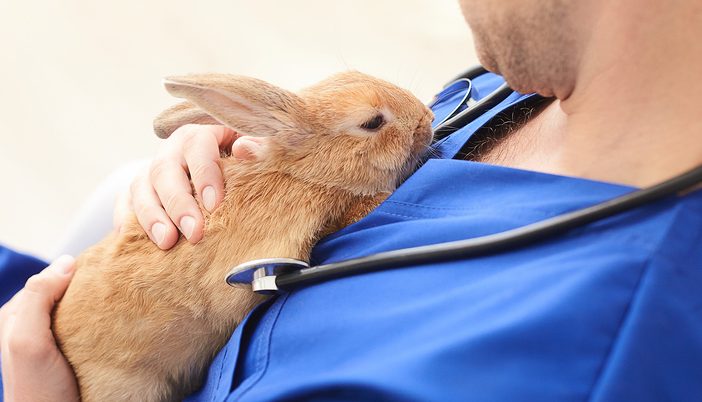
I lost a patient today, a sweet little critter who was very well loved by his family. He was an older rabbit who died during surgery. I knew he was a poor anesthetic candidate. Rabbits don’t tolerate anesthesia well, especially when they are geriatric. In spite of this, I did the procedure anyway. I felt the only options were to either perform the surgery and hope all went perfectly or euthanize the bunny. His family wanted to give him a chance, so I agreed to take the rabbit to surgery.
Halfway through the surgery, my technician said “I think we lost the heartbeat.” We performed CPR, but it was too late, my patient was gone. As soon as I realized this, the negative self-talk started. I killed him. Was it my anesthetic protocol? I should have performed the surgery quicker. I shouldn’t have waited so long to do the surgery. Had I squeezed the surgery in over my lunch break when I first saw the bunny, he would have been stronger. Why did I even think I could do this surgery? I should have pushed harder for a referral. I leaned over my deceased patient and whispered “I’m sorry!” as a tear rolled down my cheek and into his fur. I failed my patient and my clients.
All these negative thoughts went through my head as I made my way to my desk to make the dreaded phone call. Prior to surgery, the clients and I had discussed the risks at length. They made an informed decision when they signed the surgical consent form, but it was still a phone call I did not want to make. I could tell by how they answered the phone, they knew my call wasn’t good news. I braced myself for crying, anger, and regret.
My news was met with sadness, but to my surprise, it was also met with something else: kind words and encouragement. My clients sweetly said “Thank you for trying. I am sorry for you that you lost him. I know what a gentle heart you have and this must have been very hard for you.” We talked a little more and agreed that we were glad we at least gave the little bunny a chance. He had died peacefully under anesthesia and did not suffer.
I hung up the phone with a lump in my throat. I was sad that I had lost a patient, but I also had a feeling of contentment. I had treated my patient to the best of my ability. I had done what was best for him and for my clients. They had wanted their beloved bunny to come home with them at the end of the day. But what they needed was to know they had done all they could for their bunny, to know he was in the hands of someone who cared and could help him. It was not the outcome any of us wanted, but it was an outcome we all accepted without anger or blame.
I realized my negative self-talk was wrong. I hadn’t failed my patient and my client when the bunny died. My clients were happy their needs were met – I had given their bunny a chance. I had treated him with compassion and offered him the best I could. They saw this and were grateful for the care I had provided. So even though my patient died, maybe I did something right.
I think a lot of veterinarians are like me. When a patient dies, our first thought is “what did I do wrong?” and we blame ourselves. Our goal is to heal the patient, to be there hero. Not every story can have a happy ending, especially when the odds are against our patient from the beginning. Instead of beating ourselves up when the outcome is not what we want, we need to look at how we handled the case. Did we meet the needs of the patient? In this case, the bunny needed surgery or to be euthanized. He could not continue in his current condition.
Did we meet the needs of the client? My clients needed to know they did all they could within their means and to know their vet cared about them and their pet. As veterinarians, we need to stop beating ourselves up when we aren’t the hero. We have to learn to accept the outcomes, good or bad, and be content with knowing we offered the best care we could and treated the patient with compassion. If we can do that, we are doing something right.